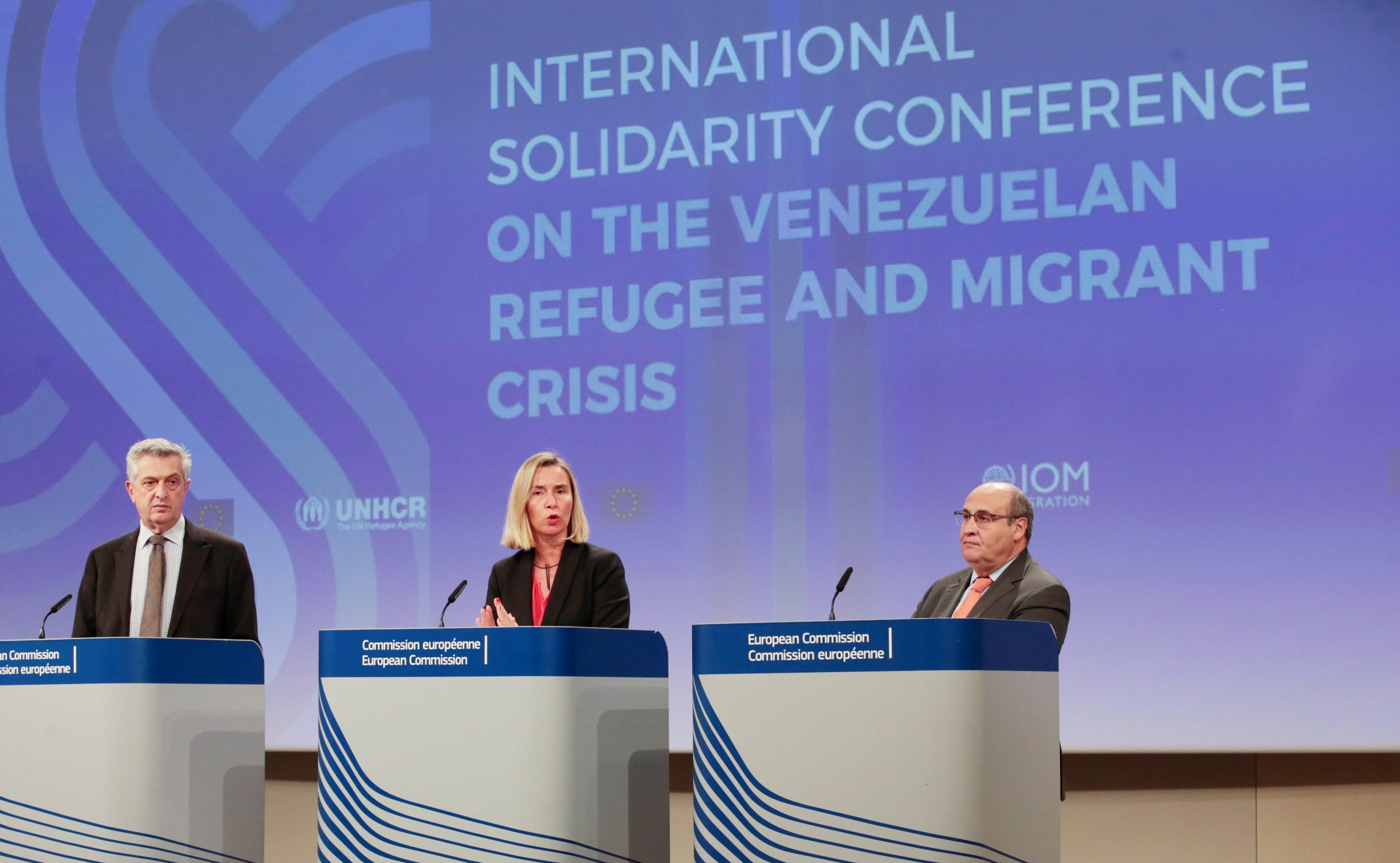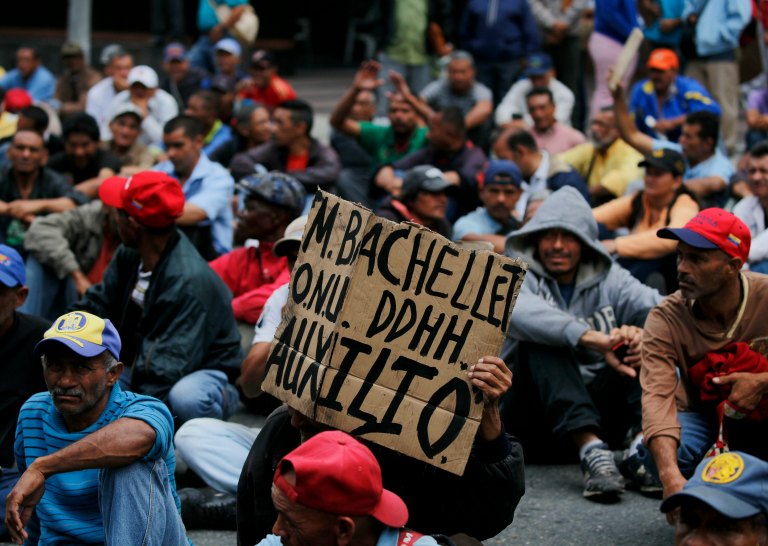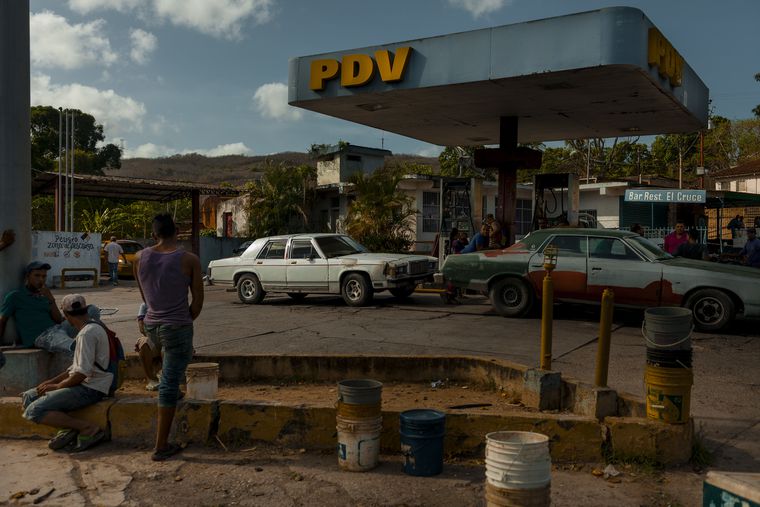Located in the Central-West region of the country, the state of Lara borders the state of Falcón to the north, Yaracuy to the east, Portuguesa to the south, Cojedes to the southeast, Trujillo to the southwest, and the state of Zulia to the west. It is made up of nine autonomous municipalities divided into 57 districts, with a total population of 1,865,368.
The Grupo Interdisciplinario para la Emergencia Humanitaria Compleja (Interdisciplinary Group for the Complex Humanitarian Emergency, GIEHC) in the state of Lara, which participated in the preparation of this report, highlighted the following as the main problems that affected the human rights of people in Lara between 2019 and 2021: a) the death of retired people and pensioners or the deterioration of their health due to the acute lack of means to access medicines and food; b) the death of women in labor at the Antonio María Pineda Central Hospital in Barquisimeto; c) the exacerbation of malnutrition in children; d) the increase in symptoms of depression and suicidal ideation in children and teenagers; e) the increase in deaths of people with chronic health conditions, and f) the increase in gastrointestinal diseases in children and older adults due to the marked deterioration of their living conditions and the quality of drinking water.
1. The number of elderly people who live alone in the state of Lara continues to increase, many of them without a source of income, economic support, or adequate pensions or retirement benefits, as the flight of people of working age. Almost 25% of older people say they live without the company of other adults. Older people are usually the caretakers of children and teenagers whose parents migrated and send money back home. Monthly pensions of 7 USD are insufficient to cover the cost of a basic food basket estimated at around 200 USD, in addition to medicines for the treatment of chronic health conditions after the donation programs came to an end. The announcements of increasing monthly pensions to 120Bs, equivalent to USD 30, have not materialized.
2. Although the government has created a system of social programs and cash transfers in addition to the pension and retirement system established by the Constitution, the monetary allocations are precarious and are not received regularly. Also, this additional system is used for the manipulation and political control of the beneficiaries in exchange for loyalty or adherence to government policies, without solving the underlying problem of the absence of a universal social security system that guarantees the right to a decent life. The situation of abandonment in which older people find themselves has reached the extreme of violating multiple rights, causing the arbitrary deprivation of life due to hunger and lack of health care.
3. The Human Rights Committee for Retired and Pensioned Persons of the state of Lara indicates that “the physical and emotional deterioration of the retired and pensioned population has increased significantly during the pandemic. Food scarcity, the lack of medicines and even the loneliness of seeing their children leave the country have aggravated the deterioration of the quality of life of our elders”. Faced with multiple violations of the rights to social security, health, food and life, the associations of retired people and pensioners have held peaceful protests for about 3 years to demand “decent pensions”. As this is a nationwide problem, the protests have expanded to different states of the country, and even abroad after the pensions for people who have been forced to leave the country were suspended.
4. The public health system in the state of Lara is in tatters, and the public authorities have denied access to data on morbidity and mortality of the state population, as well as to statistics on the state of health services. The health agencies themselves act blindly and harass and criminalize the right of affected people, health unions and organizations to provide information on critical problems that put the health and life of the population at risk, such as the increase in deaths of women in labor due to preventable causes at local hospitals. The restriction of access to public information is a way to hide the truth to sustain the omissions and avoid accountability for the aggravation of the damage to the physical and mental health of the population and for deaths attributed to preventable causes.

5. People with chronic conditions, in general, faced greater problems of lack of services from the public health system during the time of the COVID-19 pandemic. Due to the fragile capacities of the system, attention in health services focused exclusively on people with COVID-19. In the specific case of people with kidney problems who must receive dialysis treatment at least 3 times a week to survive, a higher frequency of suspension of dialysis treatment has been observed, often due to damaged units, power cuts and lack of drinking water, which it requires for proper functioning. Peaceful protests have been the only way for dialysis patients to get minimal attention paid to the severe deficiencies of the dialysis centers. The lack of access to medication among people with chronic conditions has also worsened due to their high cost. A program by the Venezuelan Institute of Social Security (IVSS) that provided these medications every month for free was suspended more than 4 years ago. Sometimes, the Health Directorate of the Government of the State delivers some medications, depending on availability and always in insufficient quantities.
6. Maternal mortality in the state of Lara has increased, to the point that during the pandemic, from 2020 to 2021, the deaths of women from causes associated with pregnancy, childbirth and postpartum reached a rate of 121.3 for every 100,000 registered live births. This rate is above the average for Latin American countries and constitutes a regression of 63 years in the prevention of maternal deaths.
7. According to the Instagram account @JusticiaParaKatherine, there were 47 reports of maternal deaths in the last 3 months of 2021. This account was created by relatives of Katherine Oviedo, a woman in labor who died after a cesarean section performed at the Antonio María Pineda Central Hospital in Barquisimeto, to collect reports of maternal mortality in the state of Lara. Members of the Medical Association of the state of Lara consider that maternal deaths at Barquisimeto’s Central Hospital present highly worrying rates as a result of the lack of prenatal care, access to antihypertensive drugs and adequate nutrition.
8. Local organization MAPANI pointed out that cases of children under 5 years of age in a situation of chronic malnutrition persist and have worsened, with weight and height deficits reaching 42%. In surveys carried out by this organization, an increase in symptoms of depression in children and teenagers has also been detected in the last two years, with many cases of suicidal ideation related to the feeling of abandonment after the migration of one or both parents abroad to find work and a source of income to support families, as a result of the effects of the complex humanitarian emergency.

9. The United Movement for Water and Human Rights has been warning about the worsening problem of the scarcity of drinking water in several communities of the state in the cities of Barquisimeto, Cabudare, Bobare, El Tocuyo and others. Not only is water scarce, but the little that reaches the homes or is occasionally obtained by the residents is of poor quality. The community diagnosis carried out for HumVenezuela in the state of Lara detected that 79.9% of the population in the city of Barquisimeto reported evidence of water pollution, in the form of odd smell, color and taste of the water supplied to homes.
10. In mid-2021, several communities of the Ana Soto district, in the southwest of Barquisimeto, an area with more than 600,000 residents, held a public demonstration outside the headquarters of the state-run hydrological company, HIDROLARA, to denounce the alarming situation of the poor quality of water and the effects of its consumption on the health of the population, which has brought an increase in cases of gastrointestinal diseases, mainly in children, teenagers and older adults. Members of the Association of Engineers of the state of Lara point out that the reason for the low quality of the water supplied by the hydrological company is the inadequate dose of chemical products used for purification, especially during the rainy season when the water coming from the basins becomes more cloudy.
Translated by José Rafael Medina




